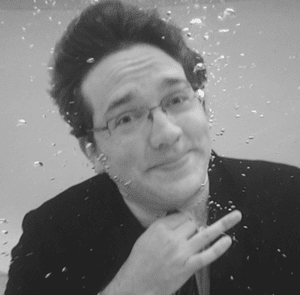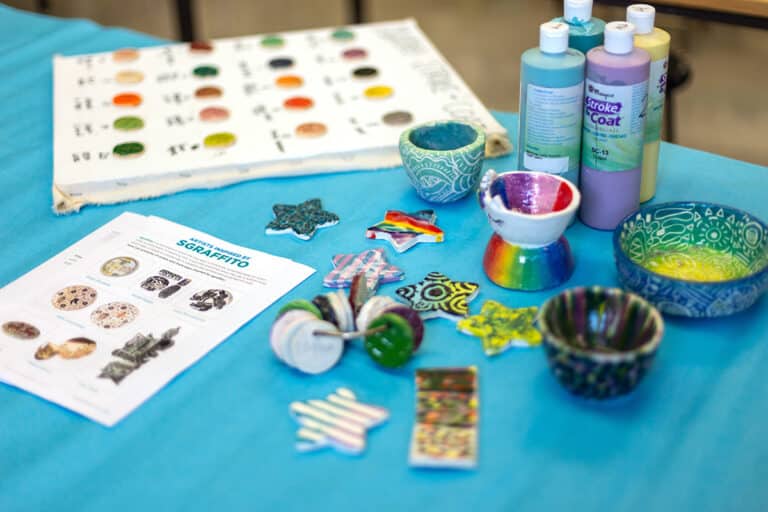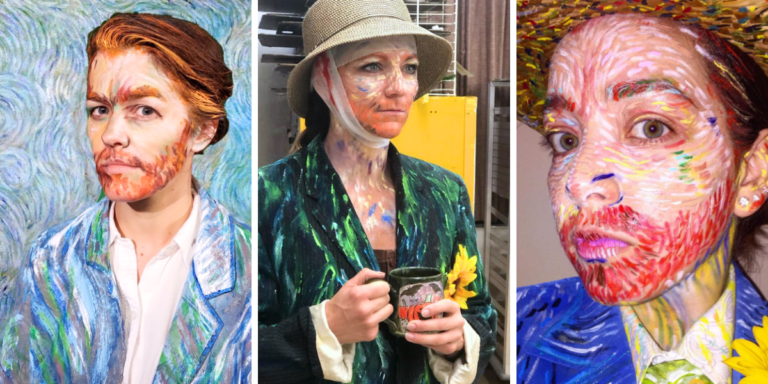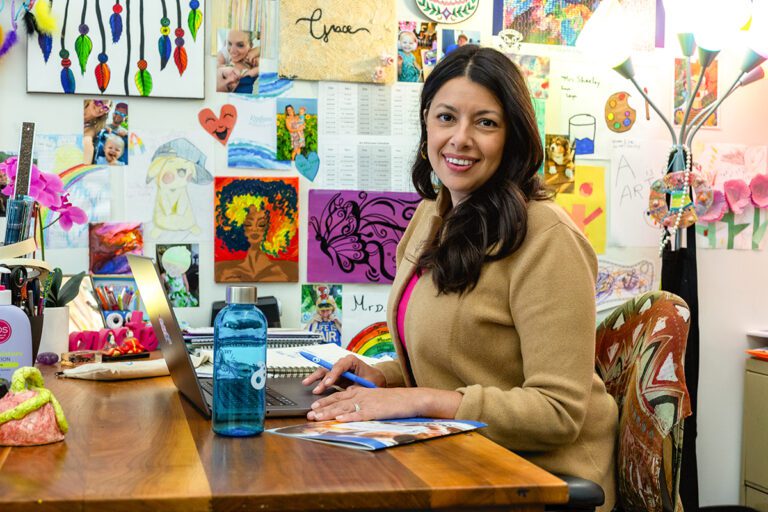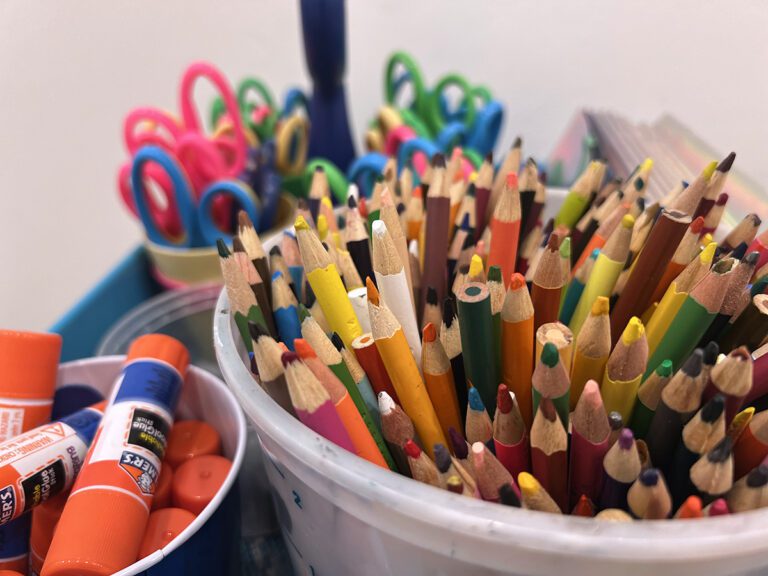As we move into spring, there are a lot of things on the minds of art teachers: upcoming art shows, ordering for next year, reorganization, and looming report cards. Perhaps none weigh more heavily on the mind, however, than the possibility of a new teaching position. It can be exciting to pursue a new position, but it can also bring about some apprehension and anxiety.
Ask yourself what you want in a new job, and whether it will be worth it to make the switch.

Some people know they need to get out of their situation as soon as possible. It may be the environment, the culture, the administration, the commute, or any of a million other things demanding you look for something new. For others, it may be the possibility of something you’ve had your eye on for a while–an elementary teacher moving up to a high school job that is finally open, for example. Those are the times where you know you have to pursue a new position with everything you have.
But other situations aren’t so cut and dried; some teachers may be unsure about switching to something new. You may not want to leave your classroom, your students, or your colleagues. Maybe you’re just feeling restless, or feeling like you just need to make a change. If you’re on the fence about whether you want to pursue a new teaching position, here are 9 things you should ask yourself as you move through the decision-making process:
1. How Big Is My Comfort Zone?
No matter how much you prepare, or how ready you think you are, a new position will undoubtedly be a big change. The school, the staff, and the students are all different. You will consistently negotiate new situations and encounter new people. Some people thrive in those situations, others have difficulty. Think about how ready you are to step outside your comfort zone on a regular basis.
2. Am I Ready for All of These New Situations?
Along with those new situations and new people, it stands to reason that you’re going to encounter some unfamiliarity on a day-to-day basis. What if I take someone’s seat in the lounge? Or their parking space? Which bathroom do staff members usually use?
There’s so much to think about, and being the new kid on the block, you need to know if you are prepared to re-learn all of the daily ins and outs of teaching at the new school.
3. What About The People I Work With?
It can be tough to give up the relationships, the camaraderie, and the sense of belonging you have established in your current job. Yes, you can keep in touch if you leave, but those relationships will not be the same as if you were still seeing those people every day.
4. How Adventurous Am I?
A new position can be an incredible new adventure. You get the opportunity to learn about a new place, talk with new people every day, and influence new, impressionable young minds. For someone who loves change, exploration, and adventure, there are few things better than a new teaching job.

5. Am I Ready to Follow the Last Teacher?
Part of that new situation is replacing the teacher that came before you. If you are replacing an old curmudgeon who should have retired years ago, your presence will likely be a breath of fresh air. If you are replacing a beloved teacher or one that may have left unexpectedly, the transition may be a little more difficult. It’s worth considering the shoes you will be filling.
6. Can I Deal With Losing My Seniority?
No matter how much experience you have, you will be the new kid on the block. Some districts will only give you credit for so many years of experience, and it can actually force you to take a pay cut when you switch to a new district. In addition, if you are a department chair, or have a leadership position in your school, that likely will not be waiting for you in a new position. Are you okay without it?
7. What is Causing My Stress?
Could it be the indifferent or unsupportive administration? The behavior of the kids in your school? The 90-minute round trip commute every single day? If you can pinpoint the biggest stressors in your current situation and find a new job that alleviates those problems, you will be much better off. A new start could do wonders for you.
8. Can I Dot My I’s and Cross My T’s?
Along with salary concerns, you need to think about retirement accounts, teaching licensure, pension, benefits, and all of the specific salary and benefit changes that will come. That isn’t always a strength of art teachers (so get help if you need it), but you need to look at all of the numbers before you act. Can you or your family handle you making less money? What if your health insurance changes? Go over everything now,so there are no surprises.
9. What is My Mindset?
Of course, you want to approach the idea of a new position with a growth mindset–embrace the challenge and give yourself the opportunity to get better! You will need that mindset to set yourself up for success because you will be in a new environment with new people, new students, and new expectations. Being ready for change is key when you are moving into something new, and your mindset as you go in is incredibly important.
As you consider taking a new position, there are, of course, the big concerns. But don’t overlook the smaller things as well. While these may seem trivial now, the small things can quickly add up. If you’re on the fence about what you really want to do, ask yourself these questions before you make the decision to switch positions.
What other things should teachers think about before they take a new job?
What has surprised you after taking a new position?
Magazine articles and podcasts are opinions of professional education contributors and do not necessarily represent the position of the Art of Education University (AOEU) or its academic offerings. Contributors use terms in the way they are most often talked about in the scope of their educational experiences.

